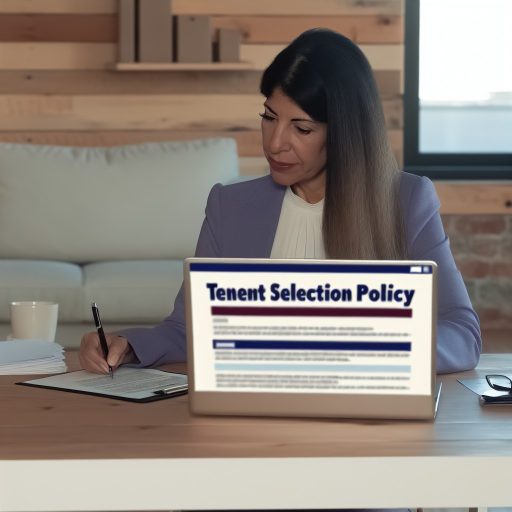Understanding Market Trends
Analyzing Local Rental Demand
Local rental demand plays a crucial role in setting rental prices.
Investors must study neighborhood demographics to gauge demand.
Consider the types of properties that attract tenants.
Examine factors that influence rental demand, such as amenities.
For example, proximity to schools or public transport can increase interest.
Analyze the local economy as it impacts job availability.
A thriving economy typically leads to higher rental demand.
Evaluating Vacancy Rates
Understanding vacancy rates helps landlords optimize income.
High vacancy rates indicate an oversupply of rental properties.
Landlords should compare their rates with local averages.
Assess how long units typically stay vacant in the area.
This data can signal when to adjust rental prices.
Landlords might need to enhance property appeal during high vacancy periods.
Gathering Market Data
Regularly collect data on rental trends in your area.
Utilize websites that aggregate rental market statistics.
Transform Your Real Estate Decisions
Unlock personalized real estate insights crafted just for you. Get actionable advice designed to amplify your success.
Get StartedEngage with local real estate professionals for insights.
Attend local housing market meetings for updates on trends.
Utilizing analytics tools can provide deeper insights.
These practices enable informed decision-making regarding pricing.
Implementing Flexible Rental Strategies
Develop flexible rental strategies that adapt to market changes.
Consider offering competitive leasing options.
For instance, short-term leases might attract more tenants.
Moreover, landlords should explore different marketing techniques.
Targeted advertising can highlight unique property features.
Dynamic pricing strategies can maximize income during peak demand.
Setting Competitive Rental Prices
Utilizing Market Data
Establishing optimal rental prices begins with gathering relevant market data.
Research local rental listings to understand pricing trends.
Analyze properties similar to yours in size and amenities.
Look for patterns in pricing for similar neighborhoods.
Showcase Your Real Estate Business
Publish your company profile on our blog for just $200. Gain instant exposure and connect with a dedicated audience of real estate professionals and enthusiasts.
Publish Your ProfileUse online rental platforms to access up-to-date market statistics.
Additionally, consider seasonal fluctuations that may impact prices.
Understanding Cost Factors
Evaluate all costs associated with your rental property.
This includes mortgages, taxes, and maintenance expenses.
Calculate your desired profit margin based on these figures.
Furthermore, understand the balance between affordability and profitability.
Adjusting for Local Demand
Monitor local demand trends in your area regularly.
High demand can justify higher rental prices.
Conversely, in a saturated market, competitive pricing may be necessary.
Stay informed about local economic changes that could influence demand.
Testing Different Price Points
Experiment with various rental prices to gauge tenant interest.
Start with a competitive rate and adjust as needed.
Observe the response from potential renters to these changes.
Collect feedback and use it to make informed adjustments.
Enhancing Property Appeal
Effective Property Upgrades
Consider modernizing your property to attract higher rent.
Focus on kitchen and bathroom upgrades first.
These areas often yield the best return on investment.
Install energy-efficient appliances to reduce utility costs.
Furthermore, quartz or granite countertops add luxury appeal.
New cabinetry and fixtures can also enhance aesthetics.
Curb Appeal Improvements
First impressions matter significantly in rental properties.
Improve landscaping to create a welcoming entrance.
Simple upgrades like fresh paint and better lighting work wonders.
Adding plants, flowers, or trees can make the exterior inviting.
Consider power washing walkways and driveways for a clean look.
A well-maintained facade reflects quality inside.
Smart Home Technology
Integrate smart technology for modern convenience.
Smart thermostats can save energy and provide control.
Security systems also attract tenants prioritizing safety.
Smart locks enhance convenience while ensuring security.
Showcase Your Real Estate Business
Publish your company profile on our blog for just $200. Gain instant exposure and connect with a dedicated audience of real estate professionals and enthusiasts.
Publish Your ProfileOffer features like automated lighting for energy savings.
These upgrades position your property favorably in the market.
Flexible Living Spaces
Create versatile spaces to appeal to diverse tenants.
Open floor plans provide flexibility for furniture arrangements.
Designate areas for home offices as remote work becomes popular.
Adding storage solutions increases functionality and charm.
Consider convertible spaces that maximize usability.
This flexibility helps in attracting a larger tenant base.
Outdoor Amenities
Enhancing outdoor space can significantly increase appeal.
Consider adding patios, balconies, or decks for relaxation.
Outdoor kitchens or fire pits encourage social gatherings.
Hostas or mature trees can provide natural shade.
Provide ample outdoor seating to create inviting spaces.
These additions enhance the property’s overall value and rentability.
Delve into the Subject: Understanding Tenant Selection Criteria For Profitable Real Estate Rentals
Implementing Efficient Tenant Screening
Establish Clear Criteria
Set specific criteria for your ideal tenant.
Criteria might include income, credit score, and rental history.
Clearly outline these requirements in your listings.
This will help filter out unsuitable applicants early.
Utilize Comprehensive Applications
Require a detailed application form from all potential tenants.
This form should gather essential information about their background.
Include sections for employment history and references.
A complete application allows better evaluation of candidates.
Conduct Thorough Background Checks
Perform background checks to verify applicant information.
Check credit records to assess financial responsibility.
Contact previous landlords to get insights on tenant behavior.
This step is crucial for ensuring reliability and trustworthiness.
Interview Prospective Tenants
Conduct interviews to build rapport and assess personality.
Ask open-ended questions to gauge their rental intentions.
A personal meeting allows you to evaluate their interest and reliability.
Showcase Your Real Estate Business
Publish your company profile on our blog for just $200. Gain instant exposure and connect with a dedicated audience of real estate professionals and enthusiasts.
Publish Your ProfileTrust Your Instincts
Pay attention to your gut feelings during the screening process.
Trust your instincts if something feels off about an applicant.
Your intuition can often guide you towards making the right decision.
Stay Compliant with Fair Housing Laws
Ensure your screening practices comply with fair housing laws.
Avoid discriminatory language in your ads and criteria.
Stay informed about local regulations related to tenant screening.
This protects both you and your prospective tenants.
Gain More Insights: Strategies For Landlords To Secure Consistent Rental Income From Tenants
Leveraging Technology
Introduction to Property Management Tools
Today, technology plays a vital role in property management.
Property management tools streamline operations for landlords.
Using the right software can significantly boost rental income.
Property Management Software
Property management software simplifies tracking expenses and income.
Many platforms offer features like online rent collection and tenant communication.
Popular options include TenantCloud and Buildium.
These solutions reduce administrative burdens on property owners.
By automating processes, owners save time and reduce errors.
Smartphone Applications
Smartphone apps enhance accessibility for landlords and tenants.
Applications like Cozy allow for easy rent payment directly from phones.
Additionally, communication remains seamless between parties.
Instant updates keep landlords informed about property issues.
Data Analytics and Financial Forecasting
Data analytics tools help property owners understand market trends.
Using platforms like Mashvisor provides valuable insights into investment potential.
Forecasting tools can predict future rental income based on historical data.
Smart decisions emerge from a deeper understanding of market dynamics.
Online Marketing and Tenant Screening
Online marketing platforms maximize exposure for rental properties.
Websites like Zillow and Apartments.com attract a broader audience.
Effective online listings lead to increased inquiries and potential tenants.
Tenant screening tools help assess reliability and creditworthiness.
Using services like TransUnion ensures quality tenants are selected.
Maintenance Management Tools
Maintenance software allows for efficient property upkeep.
Showcase Your Real Estate Business
Publish your company profile on our blog for just $200. Gain instant exposure and connect with a dedicated audience of real estate professionals and enthusiasts.
Publish Your ProfilePlatforms like Maintenance Care streamline work orders and service requests.
Prompt repairs increase tenant satisfaction and retention rates.
Ultimately, happy tenants lead to longer lease durations.
Cloud-Based Storage and Document Management
Utilizing cloud storage promotes organization and security for documents.
Platforms like Google Drive and Dropbox enable easy access to files.
Properly maintained records protect landlords during disputes.
Document management ensures compliance with local regulations.
See Related Content: Tenant Screening Process For Reliable Long-Term Real Estate Investments

Creative Leasing Options
Flexible Lease Terms
Offering flexible lease terms can attract more tenants.
This strategy allows you to cater to different needs.
For example, consider month-to-month leases.
This option appeals to people seeking temporary housing.
Moreover, introducing longer leases can secure stable income.
Secondly, offering fixed-term leases can reduce vacancy rates.
Add-on Services
Consider providing additional services to boost rental income.
Services such as cleaning, laundry, or maintenance can be appealing.
These options create a value-added experience for tenants.
Furthermore, offering parking spaces can generate extra revenue.
Co-working spaces within your property can attract professionals.
Sub-leasing Opportunities
Allowing sub-leases can expand your tenant pool.
This flexibility lets tenants share costs with others.
It also maximizes your property’s occupancy rate.
In addition, consider creating a network for roommates.
This service can simplify the process for potential tenants.
Short-Term Rentals
Another approach is to offer short-term rentals.
Platforms like Airbnb or VRBO can boost your income.
Short-term rentals attract tourists and business travelers.
Nonetheless, be aware of local regulations regarding this practice.
Researching and complying with these regulations is crucial.
Negotiable Rent Options
Lastly, consider negotiable rent options to attract tenants.
Showcase Your Real Estate Business
Publish your company profile on our blog for just $200. Gain instant exposure and connect with a dedicated audience of real estate professionals and enthusiasts.
Publish Your ProfileThis strategy allows for personalized agreements.
For instance, you can offer lower rents for longer commitments.
This promotion can ensure steady occupancy.
Ultimately, being flexible can enhance tenant satisfaction.
Uncover the Details: Tenant Screening Vs. Tenant Selection: What Property Managers Should Know
Regular Property Maintenance
Importance of Upkeep
Regular property maintenance enhances tenant satisfaction significantly.
Satisfied tenants are more likely to renew their leases.
This reduces vacancy rates and increases overall rental income.
Moreover, well-maintained properties attract higher-quality tenants.
Such tenants often pay premium rents for desirable amenities.
Routine Inspections
Conducting regular inspections is vital for identifying issues early.
Routine checks can reveal potential maintenance problems.
Addressing these problems quickly prevents costly repairs later.
Thus, proactive inspections contribute to maintaining property value.
Effective Communication with Tenants
Establishing clear communication lines fosters tenant relationships.
Encourage tenants to report maintenance issues promptly.
Responding quickly to their concerns enhances tenant trust.
This trust often results in longer lease agreements.
Responsive Maintenance Services
Offering responsive maintenance services boosts tenant satisfaction.
Quickly resolving maintenance requests shows tenants they are valued.
This responsiveness helps build a positive reputation for property owners.
A strong reputation attracts more prospective tenants.
Investment in Quality Upgrades
Investing in quality upgrades can significantly increase rental income.
Modernizing kitchens and bathrooms appeals to prospective tenants.
High-quality finishes often justify higher rental prices.
Additionally, these upgrades can lead to longer tenant retention.
Sustainability Practices
Implementing sustainable practices is increasingly attractive to tenants.
Energy-efficient appliances can reduce operational costs.
These savings can be reflected in lower utility bills for tenants.
Thus, sustainability supports tenant satisfaction and retention.
Showcase Your Real Estate Business
Publish your company profile on our blog for just $200. Gain instant exposure and connect with a dedicated audience of real estate professionals and enthusiasts.
Publish Your ProfileTax Strategies for Rental Properties
Understanding Deductions
Property owners can take advantage of various deductions.
These deductions help lower taxable income effectively.
Common deductions include mortgage interest and property taxes.
Additionally, depreciation allows for capital expenses to be deducted over time.
Repairs and maintenance costs are also deductible.
This includes things like plumbing and electrical work.
Furthermore, property management fees can reduce taxable income.
Credits Available for Property Owners
Tax credits provide another valuable opportunity for savings.
One popular credit is the low-income housing tax credit.
This credit incentivizes investment in affordable housing.
Another beneficial credit is the energy efficiency improvement tax credit.
This encourages property owners to make eco-friendly upgrades.
Investing in solar energy systems can also provide significant credits.
Tracking Expenses Efficiently
Properly tracking expenses is crucial for maximizing deductions.
Utilizing accounting software can simplify this process significantly.
Documenting all receipts and invoices helps ensure accuracy.
Establishing a dedicated bank account for rental expenses can streamline tracking.
Moreover, regular financial reviews can help identify additional deductions.
Consulting a Tax Professional
Engaging a qualified tax professional is essential for complex situations.
They can offer personalized advice tailored to specific circumstances.
Additionally, a professional can help navigate frequent tax law changes.
This assistance ensures you maximize your eligible deductions and credits.
Investing in expert advice often pays off in substantial tax savings.
Additional Resources
Church Financial Management: Principles and Best Practices in …




